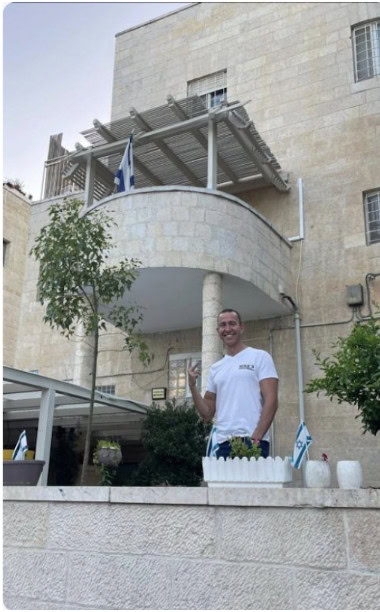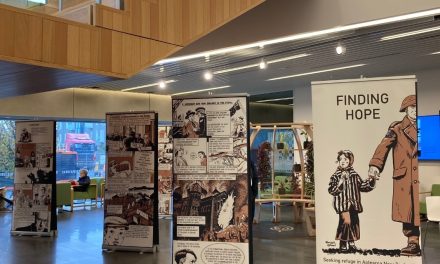By Mitch Kora and Miriam Bell…
When Auckland accountant and One Community Chronicle correspondent Mitch Kora first visited Israel she stayed at Mike’s House, a small boutique hotel in Katamon in Jerusalem.
Kora has remained in touch with the hotel’s owner, Mike Pollack, and for this week’s story for the Chronicle she caught up with Mike again.
They talked about how his hotel has fared over the time since, and it prompted her to find out more about how tourism to Israel has been affected post-October 7. Here’s what she found out.
Nearly two years have passed since Mike and I first met during my stay at Mike’s House, and at first I was impressed by the changes he has made to the hotel.
His already award-winning accommodation was looking better than ever. However, as we talked it became clear the truth behind the improvements was a little darker.
Mike remains an incredibly positive and warm individual, but the toll the conflict and subsequent effects have had on him are unmistakable.
Tourism vanished overnight as Israel was left in a state of shock following October 7. Airlines’ immediately cancelled flights to Tel Aviv, and “everything just stopped”, Mike says.
His description of those first weeks of a nation stunned was one echoed by shopkeepers, taxi drivers, and other small business owners that I spoke to across both Jerusalem and Tel Aviv.
But while the larger hotels were used to house displaced people from the north and south of Israel, the smaller ones sat empty.
Initially, there was a prevailing sense of resilience, a typical Israeli mindset, and a belief that “it will be okay; the world knows the truth and will support us”, he says.
“Sadly, this has not been the case. It’s hard, you know. We didn’t start this. Our friends and family are losing their lives, our brothers and sisters are still there [in Gaza], yet the whole world is against us.”
As the weeks turned into months the smaller hotels naturally pivoted to the domestic market. “People in the neighborhood spread the word which brought in local weekender guests, who brought people from wider Israel,” Mike says.
His hotel survived, albeit barely, and he kept busy, pouring his energy and savings into keeping the place immaculate — repainting, upgrading furnishings, cleaning and recleaning already spotless rooms.
But it is clear Mike’s passion for hospitality is deeply rooted in his connection with international visitors.
“Different languages, people of different colors and backgrounds… the stories,” he says. “Hearing the sound of oversized suitcases being wheeled across the cobblestones was exciting. Now, it’s quiet.”

That quietness is reflected in figures from Israel’s Central Bureau of Statistics’ 2025 statistical yearbook, which reveal a 94% drop in daily tourists entering Israel, surpassing Covid’s record decline.
They also show that while total overnight hotel stays reached 22.53 million, 92% of the stays were Israelis guests. Only 8.2% of all stays were from international tourists.
It really is the domestic market that is sustaining the hotel industry.
Gabriel Ben David is owner of Central Boutique Hotel near Jaffa Street, also in Jerusalem. Speaking to him, I found a mix of exhaustion and determination similar to Mike’s.
He runs a small store to make ends meet, and says that although it is good to have local customers, they only stay one or two nights at a time.
While he is awaiting the return of international travellers, he believes in the direction Israel is taking.
“I wasn’t a big supporter of Bibi Netanyahu before October 7, but now I strongly support how he is handling the war. I stand with him and with our government.”
Like Mike, he wonders how the world expects Israel to live beside Islamic fundamentalists trained since childhood on the destruction of Israel.
“They are not Muslims, who are good people, the people that started this war are entirely different.”
Back in Katamon, Mike’s optimism shines through. “Little miracles keep me going” he says, referring to the familiar faces of loyal domestic guests.
But what really drives him is a vision of the future: “I believe in Israel. I believe in Jerusalem. I have a clear path for the hotel — to return to a place where all nations, all religions, all people are welcome.”
NOTE: For the purposes of this story, Kora stayed elsewhere — in central Jerusalem — to get a broader view of how other small hotels are faring, and to assess the ongoing impact the war has had on local tourism.
Read the introduction to Mitch Kora’s “Six Stories, Six Weeks” on the One Community Chronicle HERE.






